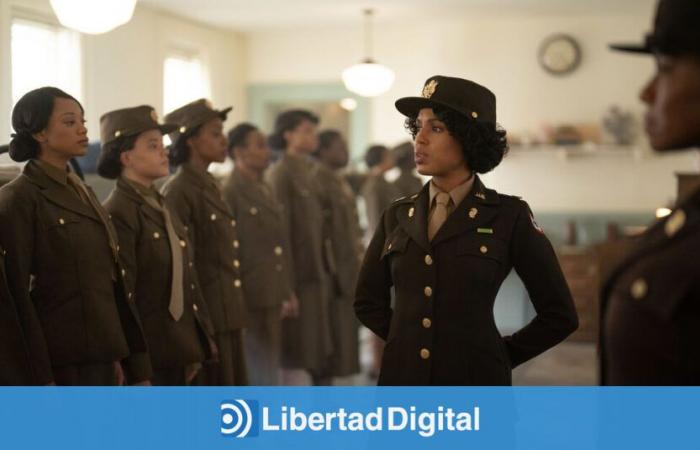King of black entertainment in the US, Tyler Perry demonstrates his limitations as a filmmaker in Six Triple Eighta war drama dedicated to the squad of black women who managed to deliver several years' backlog of mail from World War II. The story of the more than eight hundred black soldiers tries to get into the very seams of Hidden Figuresanother historical drama intended to illuminate new perspectives in the classic story, but trying to attribute its same virtues only abuses its conventions.
The result is a discursive film, falsely transcendent, although never completely annoying. The appearances of Susan Sarandon or Sam Waterston dressed as the Roosevelts, however, show how little Perry is interested in the true story of the Triple Eight Six, their impossible mission to sort three years' worth of mail in unimaginable conditions. Everything is resolved with vulgar clichés that strip away the seriousness of the true conflict of the Second World War, reduced here to a mere setting and a handful of ruined European panoramas.
Perry only has two records as a director of historical drama, solemn and complacent. And although Six Triple Eight It does manage to satisfy the demands of the weekly streaming premiere, with its soap opera emotions and its aesthetics between gray and pastel (its lack of mordant at least generates an atmosphere of comfort; its billing is sufficient and the interpretations, solvent) the scope of The action reveals Perry's weaknesses as a filmmaker who only knows how to build history based on speeches. Another director with more pretensions but also talent like Steve McQueen presented a few weeks ago Blitz (Apple TV+), about the suffering of the black population during the Nazi bombings in London, which at least provided aesthetic emotions beyond the tear-jerking softness.






